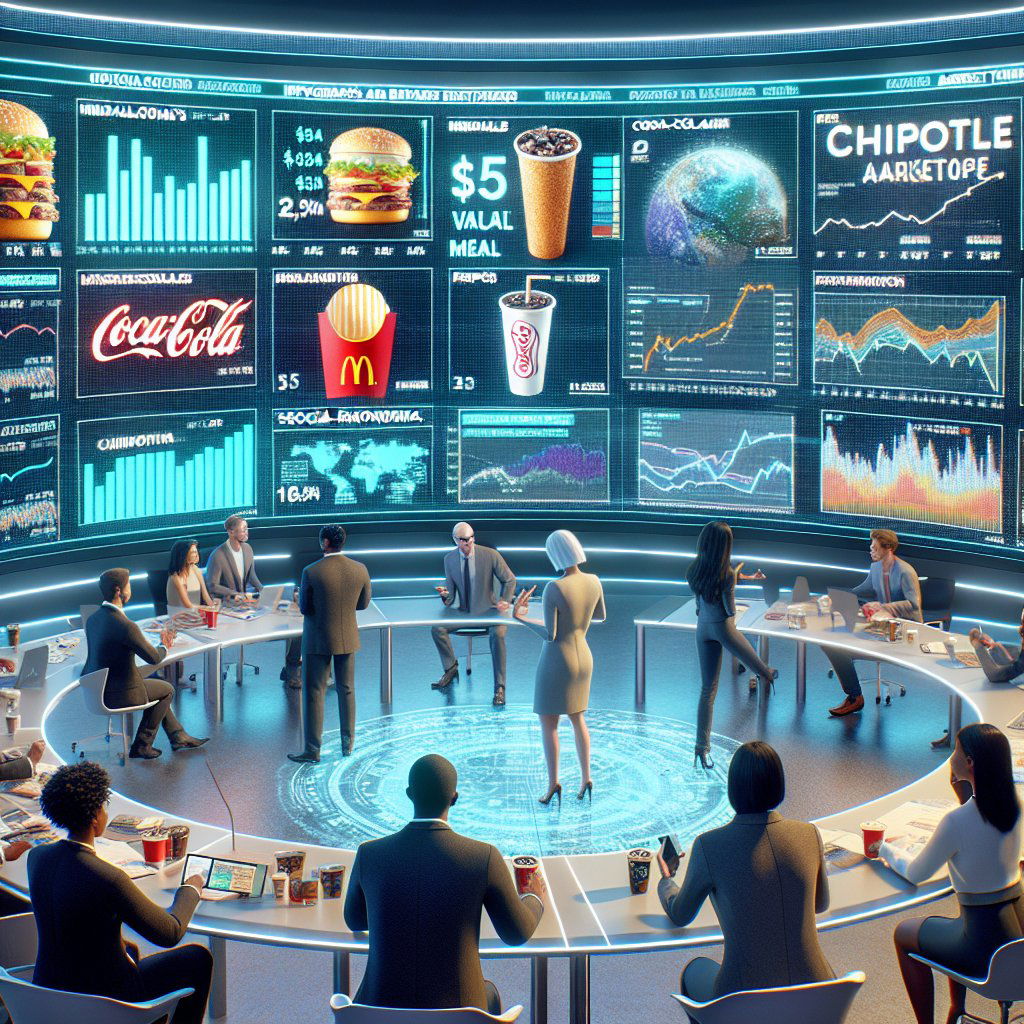Image created by AI
Global Food Giants Signal a Shift in Consumer Spending Habits
In a notable convergence of market insight, food and beverage powerhouses McDonald's, Coca-Cola, and Pepsi have each acknowledged a shift in consumer spending patterns leaning significantly towards value-oriented purchases amidst economic headwinds. This strategic chorus sings of a deeper narrative unfolding within the global economy—key industry players are now tuning in to customer calls for affordability, sparking a new paradigm in pricing strategies that may reshape profit margin landscapes and investor prospects.
Last month, McDonald's proactively introduced a $5 value meal to address a gradual decline in footfall, a strategy that has since received endorsement from 93% of its franchises, per CNBC. The move emerges from McDonald's recognition that consumers across the socioeconomic spectrum are now prioritizing value as rising living costs influence their buying decisions. Despite an uptick in same-store sales, with a sub-2% year-over-year growth credited to prior price hikes, the company acknowledges a need to reevaluate its offerings amid a collective quick-service restaurant slump.
The soft drink titans—Coca-Cola and Pepsi—echo these sentiments. Coca-Cola's Q2 results of 2024 illustrated a modest volume increase, though North American markets encountered a 1% volume dip. Pepsi's CEO Ramon Laguarta spotlighted a value-seeking American consumer, suggesting pervasive economic pressures are reshaping purchase behaviors.
Not isolated to food and beverages, the phenomenon is visible across various consumer verticals, indicating a potential limit reached on pricing elasticity. Chipotle Mexican Grill, with its ballooning profit margins—from 6.3% in 2019 to 12.5% in 2023—serves as a case in point of brands potentially overshooting necessary price adjustments, leading to consumer and retail pushbacks, such as European grocer Carrefour's stance against Pepsi's escalated prices.
This pivot to price sensitivity prompts businesses to reevaluate their models. The spotlighted $5 McDonald's deal, though widely embraced, likely sports thin margins, necessitating Coca-Cola's strategic collaborations to cushion the value proposition with combo meals—an effort to stoke traffic without drastically eroding profits.
For investors, the narrative advises caution. The era of steady, inflation-driven revenue and margin growth for 'safe' stocks may wane as companies grapple with the imperative to either hold or reduce sticker prices to preserve market share. Coca-Cola and McDonald's, bearing the brunt of stagnant growth prospects, are contrasted with Pepsi—positioned to potentially capitalize on expanding international segments, particularly its Latin American snacking business.
The implication for stockholders is clear: along with tracking companies with robust growth trajectories and margin expansion capabilities, gauging the pulse of consumer spending habits becomes an essential part of making more informed, future-proof investment decisions. As traditional blue-chip entities reconstruct their pricing frameworks and profit strategies, identifying forward-looking organizations that can harness and adapt to the economic climate will be pivotal for those seeking to maximize returns.










